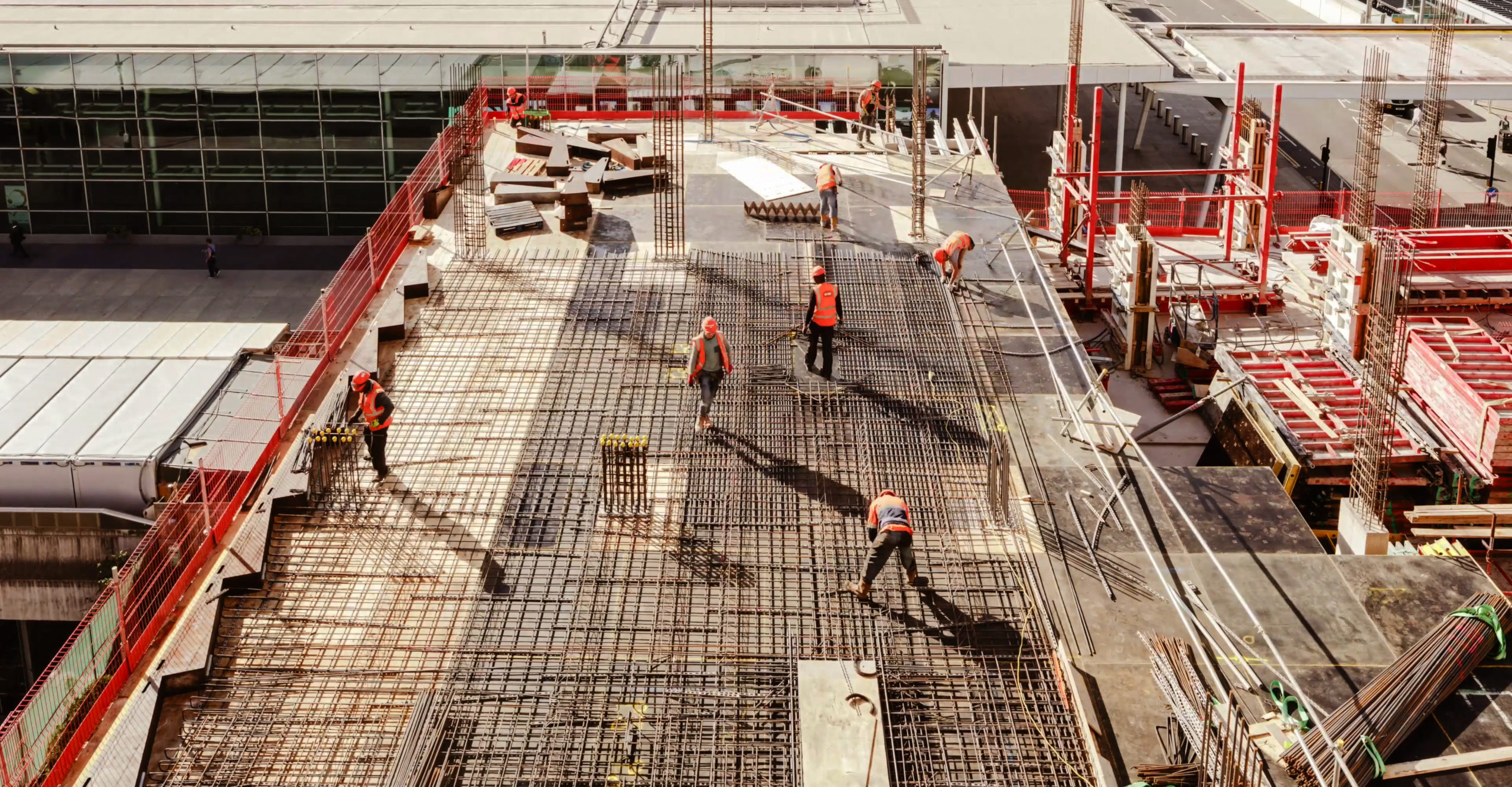Working in the Concrete Structures Industry
Looking to join the construction industry, or specifically the concrete structures industry?

With a career in construction, you’ll be part of a global industry with loads of exciting and rewarding construction jobs to choose from. Construction accounts for over 2 million jobs in the UK meaning it’s one of the biggest and most diverse sectors in the country. Construction enables you to make your mark on the world, whether by helping to design or build a family’s home, a hospital providing life-saving care or the tallest skyscraper in the world!
About the Concrete Structures Industry
Concrete is the most commonly used construction material on earth. People have been using concrete to create pioneering buildings since Egyptian times. The Romans used it to create such enduring architectural wonders as the Pantheon in Rome.

The properties of concrete make it an extremely versatile building material, flexible when freshly mixed, yet strong and durable once hardened. Concrete frame structures are a very common and reinforced concrete construction is used to build a huge variety of structures, from skyscrapers and roads to bridges and dams.
As the name suggests, this type of building consists of a frame or skeleton of concrete. Horizontal members of this frame are called beams, and vertical members are called columns. Humans walk on flat planes of concrete called slabs. Of these, the column is the most important, as it is the primary load-carrying element of the building. If you damage a beam or slab in a building, this will affect only one floor, but damage to a column could bring down the entire building The concrete frame rests on foundations, which transfer the forces – from the building and on the building – to the ground.
Job Roles in the Concrete Structures Industry
Job Roles within the reinforced concrete frame sector include site based and office based. Site based will include:
- Craft operatives in different skill areas
- Plant and specialist plant operatives
- Site supervisor
- Site manager and
- Project manager
Each requires specific training, knowledge and skills plus a formal or vocational qualification is often required. You can see the qualifications here.
Office based job roles are varied and include professional roles such as quantity surveyor; materials buyer; cad designer; and estimator all of whom assist with the build process directly.
Health and safety officers, environmental officers and quality managers help site management teams to deliver and manage the works in line with current legislation; manage risks; keep workers safe and manage the quality of the work/building.
Plant mechanics are also employed to help maintain the plant and equipment used on site.
Routes into the Sector
Routes into the sector include via formal apprenticeships; trainee and graduate opportunities.

Direct employment into an unskilled job role for those with some existing construction experience is also an option and this can lead on to an apprenticeship and/or other formal training. Employers will generally advertise apprenticeship and graduate opportunities for the roles they specifically wish to recruit for.
An apprenticeship averages at two years in total for level 2 trade occupations or 3 years for advanced and supervisory level 3 qualifications. Higher apprenticeships in management and professional occupations are also becoming more widely available and help with trained career progression whilst offering the same opportunity to earn why you learn. Higher apprenticeship courses can lead to construction related degrees and are an alternative to full time university courses, with the employer paying for the cost of the course.
A RC Frame Sector apprenticeship cannot be studied as a full time college course and direct employment is required of the apprentice by an employer. This is because learning is undertaken through 80% on site experience and practice and minimum 20% off site college time. Apprenticeship courses also provide training on the functional skill areas of Maths and English and personal learning and thinking skills.
More information
Download our full careers guide here.
Find more information on careers in construction in visit GoConstruct.
There is also information on apprenticeships here.